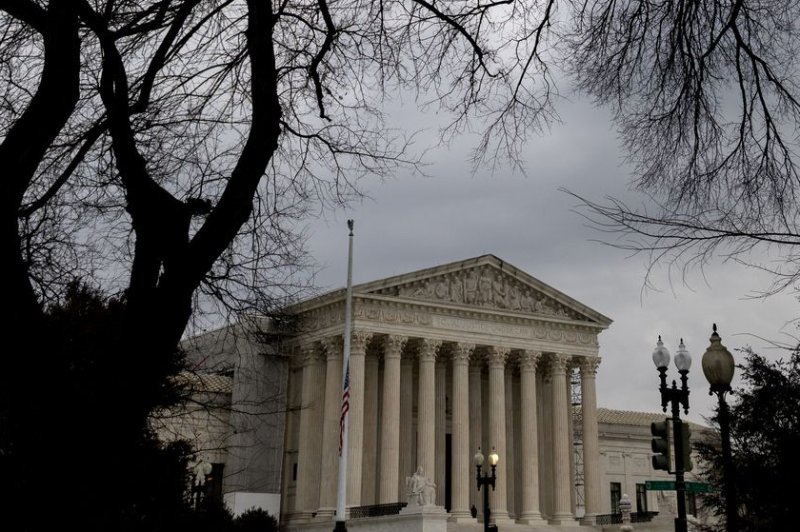The U.S. Supreme Court dismissed a case Tuesday, involving a self-appointed Americans with disabilities "tester" and the right to sue a public place for failing to provide accessibility information on its website, even though there was no intent to visit. Photo by Julia Nikhinson/UPI |
License Photo
Dec. 5 (UPI) -- The U.S. Supreme Court tossed a case Tuesday involving whether an Americans with disabilities "tester" had the right to sue a hotel over its failure to provide accessibility information on its website.
The court unanimously dismissed the appeal, calling it moot, after the plaintiff Deborah Laufer dropped her lawsuit. Laufer had sued a Maine hotel, operated by Acheson Hotels, in 2020 for not complying with ADA rules to include accessibility information on its website even though she had no intention of staying there.
Since 2018, Laufer -- who is visually impaired and uses a wheelchair -- has filed more than 600 ADA complaints because of her work as a self-appointed "tester."
"We are sensitive to Acheson's concern about litigants manipulating the jurisdiction of this court," Justice Amy Coney Barrett wrote for the majority opinion, which is the first opinion of the Supreme Court's current term.
"We are not convinced, however, that Laufer abandoned her case in an effort to evade our review," Barrett added. "She voluntarily dismissed her pending ADA cases after a lower court sanctioned her lawyer. She represented to this court that she will not file any others. Laufer's case against Acheson is moot, and we dismiss it on that ground."
While civil rights groups argue that "tester" lawsuits are vital to enforcing the ADA, which bans discrimination on the basis of disability, attorneys for Acheson argued that because Laufer did not intend to stay at the hotel, she did not have the legal standing to file a lawsuit.
After the Supreme Court agreed to take the case in March, Laufer dropped her lawsuit, one of her lawyers was disciplined, Acheson sold the hotel and the hotel updated its website to comply with ADA requirements.
"The case has been dismissed by the plaintiff. The defendant is totally different. The defendant's website, everybody agrees, is now in compliance with the ADA," Justice Elena Kagan said during oral arguments in October. "So this is, like, dead, dead, dead in all the ways that something can be dead."
On Tuesday, Barrett left open the possibility of a different ruling in the future.
"We emphasize, however, that we might exercise our discretion differently in a future case."















